1. The Security Never Ends

When someone becomes a U.S. President, they get a level of security that’s absolutely unmatched. But even after they leave office, that protection doesn’t just stop. According to the US Secret Service, former presidents are entitled to protection for the rest of their lives, and this extends to their families as well. While this might sound reassuring, it also becomes a constant part of their reality. The presence of security agents at all times might limit some of the simple freedoms they once enjoyed.
This level of protection is more than just about safety—it’s about legacy. Ex-presidents remain high-profile figures and, therefore, targets. Whether it’s during public speaking events or visits to foreign countries, the former president’s every movement is meticulously planned. This ongoing level of scrutiny can feel like a double-edged sword—while they are well-protected, it’s a reminder that their public persona never fully fades.
2. You Gain a Lifetime of Public Speaking Engagements
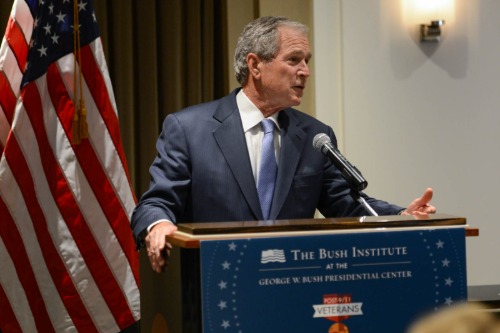
Once an ex-president leaves office, they often find themselves in high demand for speaking engagements around the world. This can be both a blessing and a burden. The demand is so high because people are fascinated by their experiences and the history they’ve lived through. From large conferences to private corporate events, former presidents are often asked to share their wisdom, experiences, and perspectives. You can find them on the Washington Speakers Bureau page.
However, this new career path also has its drawbacks. Public speaking can be exhausting, especially when you’ve just finished one of the most intense and stressful jobs on the planet. While many ex-presidents embrace this opportunity, it can become monotonous and may even begin to feel like a perpetual reminder of a past they might be ready to leave behind. It’s also a reminder that their public life isn’t entirely over.
3. They Can’t Keep Every Gift They Receive

One of the lesser-known aspects of life after the presidency is the process surrounding gifts and donations. While it’s common for public figures to receive gifts, the rules for former presidents are much stricter. When a president is in office, they receive countless gifts from dignitaries, foreign leaders, and even private citizens. However, once they leave the White House, former presidents are no longer free to keep everything they were given.
The government has established strict rules about what can and cannot be kept, you can find it on The Ronald Reagan Presidential Library & Museum page. Many of the gifts a president receives, especially those with historical or cultural significance, are considered property of the U.S. government. As a result, ex-presidents are required to hand over a portion of their gifts to the National Archives. This is part of an effort to preserve important historical artifacts for the public, ensuring that future generations can study and appreciate them.
4. You Can Write a Book, But You’ll Never Escape the Politics

If you think that retiring from the White House means you’ll get to fully step away from politics, think again. A significant number of former presidents turn to writing books, often memoirs, as a way to reflect on their time in office, going all the way back to John Adams, PBS reports. These books are not only personal but often politically charged, offering insight into their decision-making processes, their beliefs, and how they navigated the complexities of being president.
This comes with its own set of challenges. For one, any book written by a former president is inevitably scrutinized for its political content. Readers, media, and political opponents will dissect every word, often interpreting it through a partisan lens. There’s little room to be neutral when you’ve led the country through some of its most difficult moments. So even in retirement, they can’t fully escape the political fray.
5. You Need to Stay Relevant in a Changing World

When an ex-president leaves office, the world doesn’t stop moving. In fact, the landscape around them constantly changes, and it can be tough to maintain relevance. While some ex-presidents find ways to remain in the public eye through speaking engagements, activism, or philanthropic efforts, such as Jimmy Carter did (check it out on the Office of the Historian page), others have to work hard to ensure they’re still seen as credible and important figures.
Staying relevant means adapting to new circumstances. Former presidents must learn to navigate the changing tides of global politics and domestic affairs, all while balancing the need to maintain their own integrity and avoid stepping on the toes of current officeholders. It’s a delicate line to walk. When you’ve been at the pinnacle of power, it’s easy to feel like the world should still revolve around you, but the truth is, people move on quickly.
6. Your Financial Future Is Not Always Set in Stone

Although it’s a common misconception that ex-presidents are guaranteed a lifetime of wealth and comfort, the reality is that financial security is never a given. While it’s true that they receive generous pensions and perks after leaving office, many former presidents seek additional income to fund their post-office lives. Speaking engagements, writing books, and consulting can all bring in significant amounts of money, but it’s not automatic. They must hustle to find these opportunities and keep up with an ever-changing market for their services.
In addition, the former first family also has personal financial responsibilities. They no longer have the vast financial resources of the White House at their disposal. Many ex-presidents, like Jimmy Carter, have continued to work hard in their post-presidency years, even engaging in hands-on charity work, because they have a genuine desire to contribute rather than just rest on their laurels. Even with their pension, many have to adapt to a different financial reality compared to their time in office.
7. You Experience a Shift in Public Perception
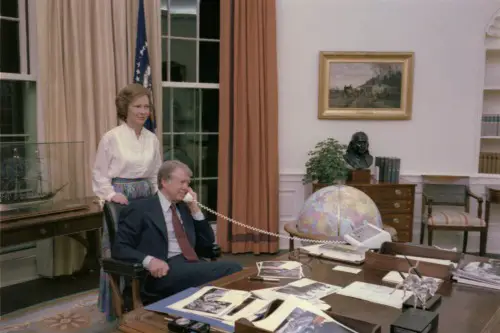
During their time in office, presidents are constantly in the spotlight, subject to public opinion that can change on a dime. Once a president leaves office, however, they often experience a shift in how the public perceives them. Over time, historical figures often see their legacies undergo re-evaluation. The fervor surrounding them may fade, but there’s also an opportunity for reassessment.
This changing perception can be both frustrating and liberating. Ex-presidents are sometimes left wondering if their efforts will be remembered positively or negatively, and how long it will take for their legacy to be fully understood. Some enjoy the chance to quietly reflect on their presidency, while others stay actively involved in shaping their historical narrative. The passage of time allows the public to view past actions from new angles, but it also ensures that former presidents can’t always predict how history will ultimately judge them.
8. You Might Become a Source of Wisdom for Current Leaders
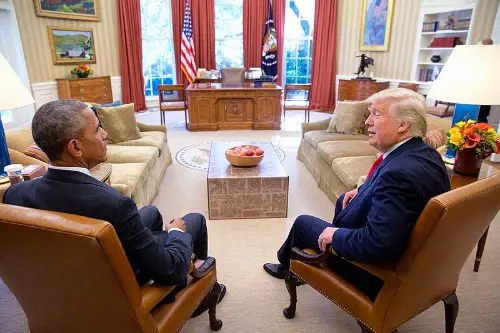
One of the surprising things about being an ex-president is that you’re often called upon for advice by those still in power. Presidents, both in the U.S. and abroad, often reach out to former leaders to get their thoughts on crucial issues. This can happen during times of crisis, when the sitting president might need guidance on matters such as foreign policy, military action, or navigating complex domestic challenges. There’s an understanding that a former president, having been through the high-pressure situations of the office, has valuable insight.
This comes with its own set of challenges. The current president is usually from a different political party, and any advice or help extended can be perceived as partisan or meddling. Former presidents may have to carefully navigate these conversations to maintain their political neutrality and avoid stepping into the political fray once again. At the same time, being a source of wisdom can help reaffirm their relevance.
9. You Can’t Fully Escape Public Scrutiny

Even after leaving the White House, a former president is never really free from public scrutiny. Whether it’s their financial decisions, their post-presidential activities, or their personal life, they remain in the public eye. People are constantly interested in what they’re doing, and the media is ever-ready to report on their every move. Former presidents can’t easily avoid this attention—whether they’re trying to enjoy a quiet dinner with their family or spend time away from the spotlight.
This ongoing scrutiny can be exhausting. Former presidents often find themselves asking whether they’re truly free or if they’ve traded one form of constant public attention for another. While the White House provides a level of protection from criticism, leaving it exposes them to the harsh reality of public life. For some, this can be one of the hardest adjustments after leaving office, as they go from having some semblance of privacy back to being under a microscope.
10. You Can Find Peace in a Quiet Life, But It’s Rare
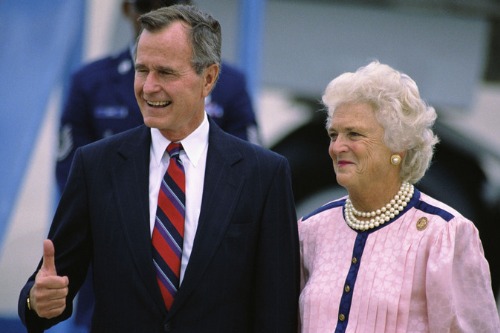
While many former presidents do seek a quieter, more peaceful existence after leaving office, it’s not always easy to attain. Some find solace in retreating to their homes, like George H.W. Bush did in Maine or Jimmy Carter in Georgia. Here, they can spend time with family, engage in hobbies, or even take on smaller, more personal projects. There’s a certain joy in stepping away from the whirlwind of politics, even if it’s temporary.
But for most ex-presidents, complete peace and quiet are elusive. The demands of public life, the constant attention, and the lingering need to contribute to national and international causes make it hard to step fully away. They may long for a more private existence, but the world tends to pull them back into public service in some way or another. It’s rare for any of them to achieve the kind of simple retirement that most people dream of. In that sense, the post-presidency life is far more complicated than a peaceful retreat.
11. The Strain on Family Life Can Be Intense
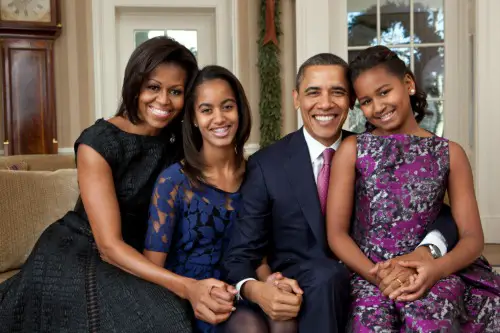
Life in the White House is not just difficult for the president; it also places significant strain on their families. Once out of office, former presidents often need to navigate a new dynamic with their spouses and children. For some, the transition is smoother than others. Former First Ladies, like Michelle Obama, have famously shared how life after the White House can be disorienting and challenging, particularly in terms of personal privacy and the pressure to remain in the public eye.
For families, the adjustment is equally important. There’s often a period of rebalancing as spouses and children try to reclaim a sense of normalcy. While the former president’s life is still on display, the rest of the family must decide whether or not to stay in the public spotlight. This can be tough, especially if family members are still adjusting to their new roles. The public’s obsession with their private lives can sometimes be overwhelming, and that pressure can take a toll on family relationships, creating complications that didn’t exist during their time in office.
12. You Can Still Be an Agent for Change
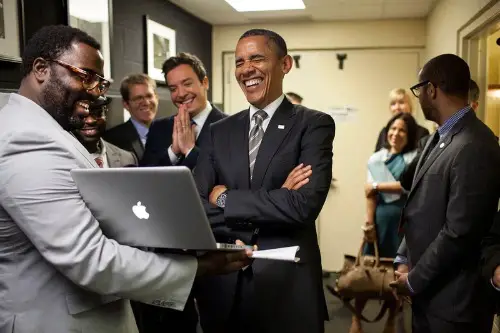
Even though they no longer hold the highest office in the land, former presidents have the potential to be agents for change. Many take this opportunity to focus on global issues, like climate change, health care, or global poverty. Bill Clinton, for example, established the Clinton Foundation to address a variety of humanitarian causes, while Jimmy Carter has spent decades working with Habitat for Humanity, helping to build homes for those in need.
Being an ex-president allows them to use their influence without the constraints of office. They can collaborate with NGOs, start new initiatives, or raise awareness about important issues without worrying about the immediate political consequences of their actions. This phase of life can be deeply fulfilling for many former presidents, as it allows them to focus on meaningful causes. However, even in retirement, their work can stir controversy, depending on the political climate, demonstrating that the post-presidency phase can never be fully free of political undercurrents.
13. They Still Get State Funerals and Final Honors

Even in death, former U.S. presidents receive a level of honor and ceremony that few others do. Upon their passing, they are entitled to a state funeral, a tradition that includes a formal procession, military honors, and tributes from political leaders. These events are meticulously planned, often years in advance, ensuring that the former president’s legacy is celebrated on a national scale.
While a state funeral is a moment of national mourning, it also serves as a final reminder of their lasting impact. Every detail, from the 21-gun salute to the eulogies given by world leaders, reflects their role in shaping history. Some former presidents, like Ronald Reagan and George H.W. Bush, had widely attended ceremonies that brought together political figures from all sides. Even after leaving office, their influence and legacy continue to be acknowledged in one of the most public ways possible.


